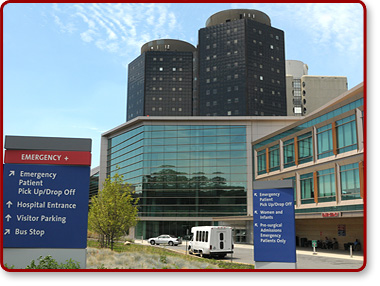 Once you have been moved from the Post Anesthesia Care Unit (PACU), you will either be sent to an inpatient bed or taken to the area where nurses will prepare you to go home.
Once you have been moved from the Post Anesthesia Care Unit (PACU), you will either be sent to an inpatient bed or taken to the area where nurses will prepare you to go home.
What do I need to know before going home?
Before leaving the facility, you must meet specific discharge criteria. You may be required to urinate before discharge home after certain surgical procedures. If you had a spinal anesthetic, you may be sent home with instructions about what to do if you can’t urinate within a given time range.
Your nurse will go over your post-operative instructions with you and your family/friend. The goal is to teach you what to expect and will include activity restrictions (if any), any special diet plans, pain medicines, special instructions related to your surgery, a follow-up with your surgeon if you need one and any signs to watch for and to report to your surgeon. If you have stopped any medications before your surgery, ask your nurse or physician about when you can start taking them again. Depending on your surgeon’s orders, a prescription for new medicine may or may not be given to you.
How long will it take for me to feel normal again?
Be prepared to go home to continue your recovery. Plan to take it easy for a few days until you feel back to normal. Patients often feel minor effects following anesthesia, including being very tired, having some muscle aches, a sore throat and occasional dizziness or headaches. Nausea also may be present, but vomiting is less common. These side effects usually go away quickly in the hours following surgery, but it may take several days before they are gone completely. Due to feeling tired or to having some discomfort, most patients do not feel up to their normal activities for several days.
Can I drive myself home?
Patients who undergo outpatient surgery must have someone to drive them home and stay with them for 24 hours following surgery. The medications you received during your surgery may affect your memory and mental judgment for the next 24 hours. During that period, do not use alcoholic beverages and tobacco products, do not make important business or personal decisions and do not use machinery or electrical equipment.
In a day or two after surgery, a nurse may call to check on your progress. It is important that you provide the staff with an accurate phone number, so they can contact you.
Reprinted with permission by the American Society of PeriAnesthesia Nurses (ASPAN). Copyright © 2010.
All rights reserved. ASPAN Patient Information. Available at: www.aspan.org.


